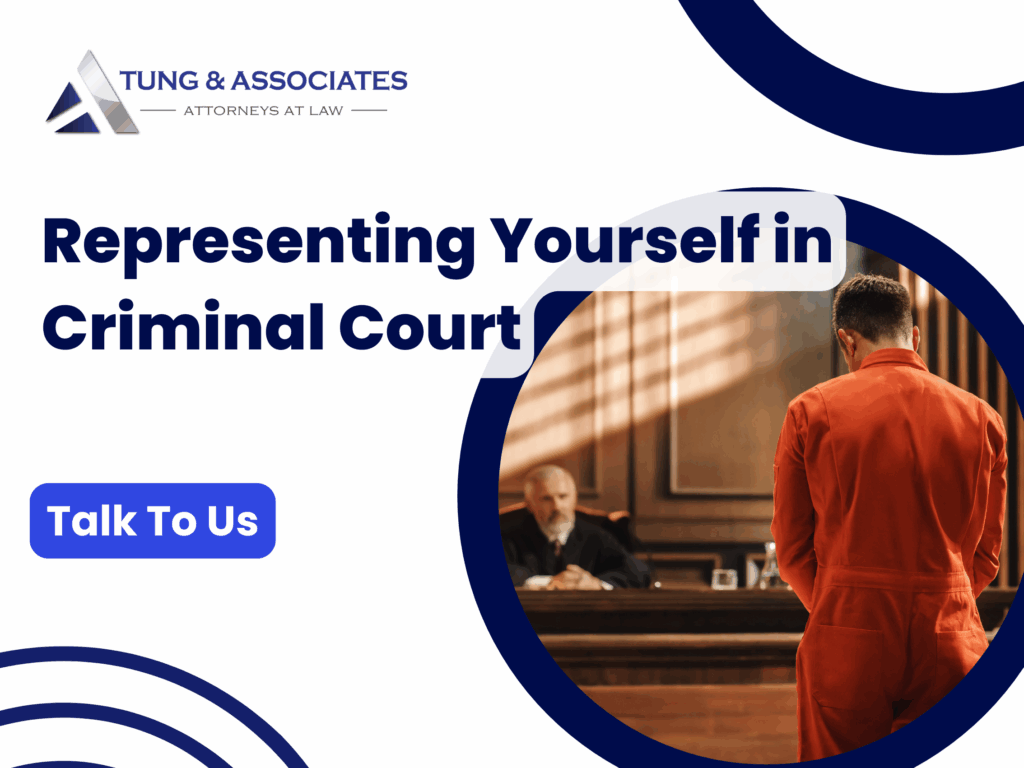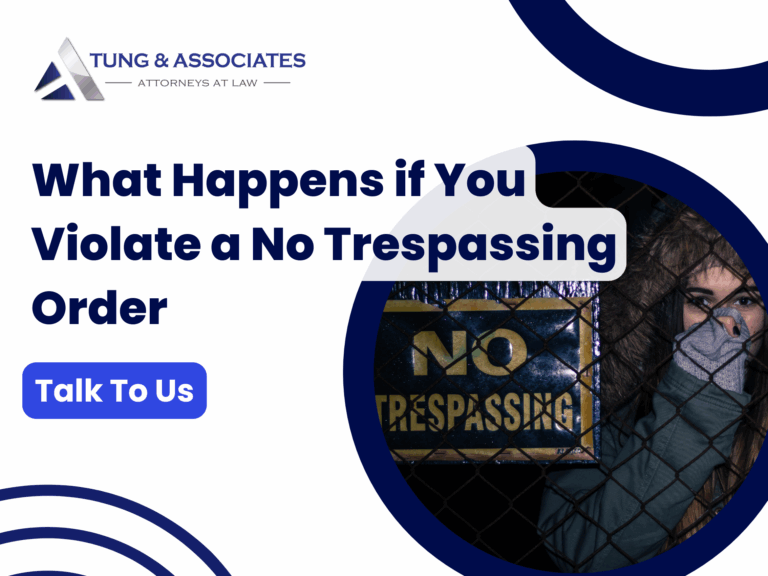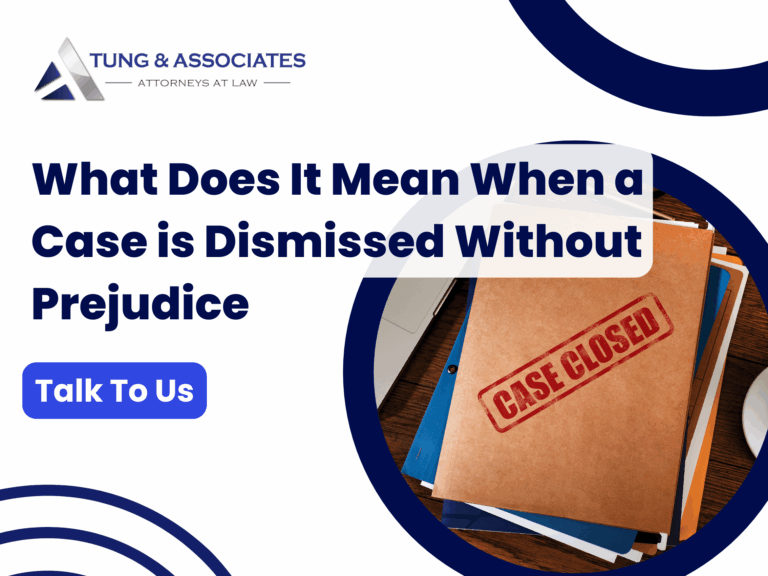Facing criminal charges is overwhelming, and the first decision you make can shape the outcome of your case. When you’re unsure where to turn, having an experienced Pasadena criminal defense attorney by your side can make all the difference.
At Tung & Associates, our lead attorney Antony Tung has dedicated his career to protecting people who find themselves in the criminal justice system. From the moment you contact us, we focus on listening to your concerns, answering your questions, and helping you feel less alone in a stressful time. Our office is located at 790 East Colorado Blvd., 9th Floor in Pasadena, making us easily accessible to clients across Los Angeles County. You can reach us directly at (626) 416-4668 for immediate help.
Why Are We a Great Choice to Defend You?
We know that choosing an attorney is about trust. That’s why we approach every case with compassion and respect, but also with the aggressive legal strategy needed to protect your future. Antony Tung and the attorneys at our firm have handled a wide range of cases from misdemeanors like DUI and shoplifting to serious felonies such as assault and drug trafficking.
The “why” behind hiring an attorney instead of going alone is simple: prosecutors and judges do this work every day, and they expect you to meet their standards. Without guidance, even smart and capable people make mistakes that can change the course of their lives. Our attorneys step in to shield you from that risk, ensuring every deadline, motion, and argument is handled properly so that you have the best possible defense.
What Should I Know About Representing Myself?
Many people think about representing themselves in criminal court, often because they want to save money or believe their case is straightforward. In reality, even “simple” cases can become complicated quickly. A first-time DUI after a traffic stop on the I-210 freeway or a minor shoplifting charge in Old Pasadena may seem manageable, but both can carry long-term consequences such as jail time, license suspension, or a criminal record.
This is where an experienced Pasadena defense attorney can make a difference. We help clients avoid pitfalls, fight for fair treatment, and work toward outcomes that protect their future. Choosing to represent yourself may be legally possible, but with so much at stake, it’s rarely the right choice.
What Does “Representing Yourself” in Criminal Court Mean?
Representing yourself in criminal court is called pro se representation. This means you are choosing to act as your own lawyer instead of having an attorney defend you. In the eyes of the court, there is no difference. You are expected to know the same rules of evidence, file the same paperwork, and argue with the same skill as a trained defense attorney.
Do I Have the Right to Represent Myself?
Yes. Under the Sixth Amendment, you have the right to an attorney, but you also have the right to waive that attorney and represent yourself. This right was confirmed by the U.S. Supreme Court in Faretta v. California (1975), which held that a criminal defendant may proceed without counsel if the waiver is made knowingly and voluntarily.
However, before allowing self-representation, judges must hold what’s called a Faretta hearing. During this hearing, the judge asks questions to make sure you understand what you are giving up and whether you are mentally competent to go forward alone. If the judge finds you don’t fully understand the consequences, or that you cannot handle the responsibilities of a trial, they may deny your request to proceed pro se.
Why Does the Court Require This Extra Step?
The why is straightforward: self-representation carries enormous risks. Judges know that without training, most people will make mistakes that could lead to a conviction or harsher sentence. Courts want to be certain that anyone who gives up their right to counsel is doing so with their eyes open.
The law is designed to protect you even when you don’t realize you need protection. That’s why courts conduct this inquiry and warn defendants repeatedly about the dangers of going alone. Once you waive your right to counsel, the judge will treat you exactly as if you were a licensed lawyer. There is no safety net.
Is Representing Myself a Good Idea?
While the law allows you to represent yourself, almost every attorney and judge will tell you it is a bad idea. The saying “A person who represents themselves has a fool for a client” exists for a reason. Without training and objectivity, you are more likely to miss legal defenses, mis-handle evidence, or even accidentally incriminate yourself.
Even if your case seems simple, like a misdemeanor shoplifting charge in Pasadena or a first-time DUI after leaving Colorado Boulevard, the reality is that criminal law is complex. There are motions, deadlines, and procedural traps that can quickly overwhelm someone who isn’t trained. Once mistakes are made, they are very difficult, sometimes impossible to undo.
Can I Represent Myself in a Criminal Case and Should I?
You can legally represent yourself in a criminal case, but the real question is whether you should. The right to self-representation is guaranteed by law, but that doesn’t make it the best choice.
Am I Allowed to Go Without a Lawyer?
Yes. Courts recognize your right to stand in as your own attorney. If you ask to proceed without counsel, the judge will hold a hearing to confirm you understand the risks. This ensures your decision is informed and voluntary. As long as you are competent and aware of what you’re giving up, the court will usually allow it.
Is It a Good Idea to Represent Myself?
Almost never. Judges and attorneys strongly caution against it, because the courtroom is not designed for beginners. Prosecutors are highly trained and experienced. They know how to present evidence, question witnesses, and use the law to their advantage. When you represent yourself, you’re going up against professionals who do this for a living while you’re learning on the fly.
Why Do Judges Discourage It?
Judges discourage self-representation because they see firsthand how badly it usually ends. They know that people who go pro se often make simple but costly mistakes: filing the wrong documents, missing deadlines, or failing to object to harmful evidence. Once those mistakes happen, the court rarely allows a “do-over.”
The truth is this: while you can represent yourself, doing so is almost always a path to worse outcomes, more convictions, harsher sentences, and fewer opportunities to appeal. For that reason, the practical answer to “Should I?” is no.
Why Do Some People Consider Representing Themselves?
Many people think about going without a lawyer, even when the risks are high. The reasons usually come down to money, trust, or the belief that the case is “simple.”
Is It Really Just About Saving Money?
Yes, cost is the most common reason. Hiring a private defense attorney can feel expensive, and some people assume they will save money by handling the case on their own. The problem is that the financial savings are short-term. A conviction can lead to fines, loss of employment, license suspension, or even jail time consequences that cost far more in the long run than hiring an attorney would.
Do People Distrust the System?
Absolutely. Some defendants refuse a public defender because they don’t trust government-paid attorneys to fight for them. Others feel confident in their own intelligence and believe they can “learn the law” from the internet or TV shows. But courtroom reality is far different from what’s shown online or on television. Even well-educated defendants often find themselves overwhelmed once they’re standing in front of a judge.
What About “Simple” Cases Like a First-Time Offense?
This is another common reason. Someone facing a first-time DUI on the I-210 freeway or a minor shoplifting charge in Old Pasadena may think, “I can handle this myself.” What they don’t realize is that even small charges can carry serious consequences: license suspension, probation, or a permanent record that shows up on background checks. What seems simple at first quickly becomes complicated once court deadlines, evidence rules, and prosecutor strategies come into play.
Why Is This Belief Dangerous?
The danger lies in underestimating the system. Defendants assume that if the facts are clear, the case will resolve fairly. But trials are about procedure, not just facts. A missed filing or poorly handled hearing can shift the outcome dramatically. That’s why judges consistently warn: even if the reason for self-representation seems valid, the risks usually outweigh the benefits.
What Should I Do If I’m Facing Criminal Charges?
Facing a criminal charge is one of the most stressful moments in life. The decisions you make early one specially whether to hire an attorney can change your future forever.
Why Should I Avoid Representing Myself?
The risks of self-representation are simply too high. Even in cases that appear minor, mistakes with filing deadlines, evidence, or courtroom rules can lead to harsher penalties or even jail. Once those mistakes happen, it’s nearly impossible to fix them. Having an attorney at your side ensures that your rights are protected and that every option for a better outcome is fully explored.
What Is the First Step I Should Take?
The best step is to speak with a criminal defense attorney as soon as possible. An attorney can review your case, explain what you’re up against, and guide you through the next steps. With the right lawyer, you’re not navigating the system alone, you’re backed by someone who knows the courts, the prosecutors, and the law.
Who Can Help Me in Pasadena?
If you or a loved one are facing criminal charges in Pasadena or the greater Los Angeles area, you don’t have to face it alone. Antony Tung and the Pasadena criminal defense attorneys at Tung & Associates have the experience, compassion, and dedication to fight for you. We understand the fear you’re feeling, and we’re here to provide both guidance and strong defense when you need it most.
Contact Tung & Associates today at (626) 416-4668 or visit us at 790 East Colorado Blvd., 9th Floor, Pasadena, CA 91101 for a free and confidential consultation. Don’t risk your future by trying to represent yourself, let us stand with you, protect your rights, and fight for the best outcome possible.





